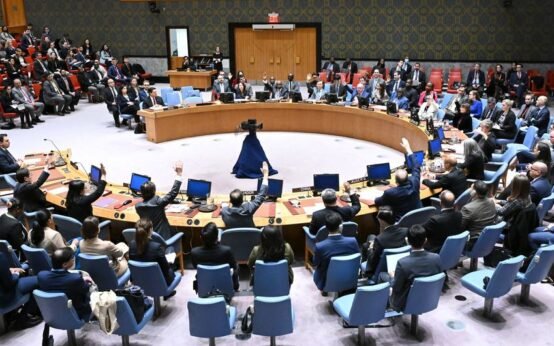Chinese President Xi Jinping welcomed Russian President Vladimir Putin and North Korean leader Kim Jong Un as honored guests. Their presence, side by side, sent a clear signal: Moscow, Beijing, and Pyongyang are willing to coordinate openly against U.S. power in Asia and beyond. The parade, which featured advanced missile systems, hypersonic weapons, and AI-driven military platforms, was more than a ceremonial display. It was a public declaration of intent.
Energy Cooperation Between Russia and China Gains Strategic Importance
One of the strongest pillars of the Russia–China partnership lies in energy. Russia’s state nuclear agency, Rosatom, has committed to help China surpass the United States in nuclear power capacity. By providing new reactors and supporting closed-cycle fuel systems, Moscow is boosting Beijing’s long-term energy security and helping it reduce dependence on fossil fuels.

At the same time, the signing of the Power of Siberia 2 gas pipeline deal marked another milestone. Once completed, the pipeline will send 50 billion cubic meters of natural gas annually from Russia to China via Mongolia. For Moscow, this project secures a long-term buyer as European markets shrink due to sanctions. For Beijing, it guarantees steady supplies of energy that are critical to powering its industries and military expansion.
Technological Collaboration Strengthens Russia–China Strategic Position
Beyond energy, Moscow and Beijing are coordinating on advanced technology. Both governments recognize that artificial intelligence, space exploration, and quantum computing will define future military and economic power. China’s investments in semiconductors and AI complement Russia’s expertise in aerospace, nuclear science, and weapons design.
Recent reports suggest joint research projects may soon expand into cybersecurity and satellite networks, creating a new front where both countries can limit U.S. advantages. These initiatives are designed not only for domestic use but also to create export opportunities for other nations aligned with their vision of a multipolar world.
Diplomatic Platforms Showcase a Push for Multipolarity
The partnership is not limited to bilateral projects. Russia and China have leveraged international forums like BRICS and the Shanghai Cooperation Organization to promote an alternative global order. Their shared message emphasizes “sovereignty, non-interference, and equality” among states a narrative that appeals to many developing nations frustrated with Western pressure.

At BRICS summits, Moscow and Beijing have pushed for reforms in global finance, advocating for less reliance on the U.S. dollar in international trade. At the SCO, they’ve promoted joint military drills and intelligence-sharing frameworks that exclude the United States. These moves reflect a coordinated effort to reshape international institutions to serve their collective interests.
Arctic Cooperation Expands Their Geopolitical Reach
Another significant dimension of this partnership lies in the Arctic. As melting ice creates new trade routes and opportunities for resource extraction, Russia has accelerated the militarization of its northern bases. China, calling itself a near-Arctic state, has invested heavily in polar research stations and icebreakers.
By working together in the Arctic, Moscow and Beijing aim to secure control over critical shipping lanes that could rival existing routes dominated by Western powers. The U.S. has expressed growing concern about this partnership, recognizing it as a long-term challenge to its naval and economic influence in the far north.


 International Support for Morocco’s Autonomy Plan at UN Assembly
International Support for Morocco’s Autonomy Plan at UN Assembly  Huawei and DeepSeek Assists China Break Reliance on U.S. Chips
Huawei and DeepSeek Assists China Break Reliance on U.S. Chips  Kim Jong Un Expresses Gratitude to North Korea–China Ties
Kim Jong Un Expresses Gratitude to North Korea–China Ties  Russia Faces a Deepening Population Collapse Crisis Amid War
Russia Faces a Deepening Population Collapse Crisis Amid War  Canadians Pull Back from U.S. Trips Amid Border Backlash
Canadians Pull Back from U.S. Trips Amid Border Backlash  US vetoes UN Security Council resolution on Gaza ceasefire
US vetoes UN Security Council resolution on Gaza ceasefire